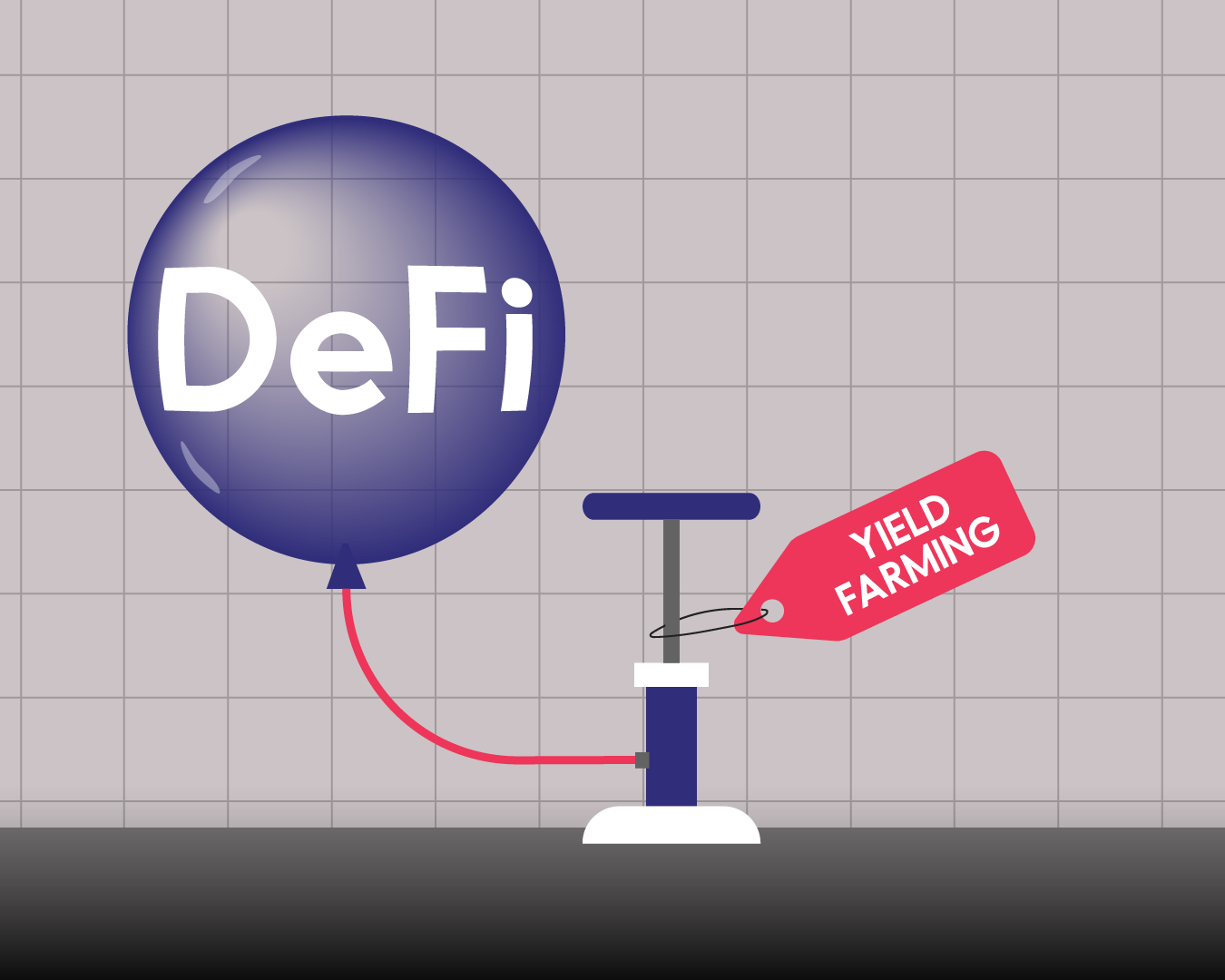There’s been much speculation in the industry of late concerning the long term potential of DeFi and whether it is going to fail. As many people are making money fast with little consequence, many in the industry have taken notice and are starting to wonder whether Decentralized Finance (DeFi) a long term solution. Are DeFi protocols just a fad, let’s take a look at what is the long term potential of DeFi.
What Is DeFi?
DeFi stands for decentralized finance is the name given to a number of entities that have taken traditional investment tools and built them into cryptocurrency protocols and decentralized applications. The concept is generally consistent: a pool of consumer investors (lenders) deposit their assets into a DeFi protocol and earn interest on the asset. The interest rates are attractive, and the risk is shared amongst the pool. While the DeFi industry is accredited to being operated in a trustless and transparent manner, there have been several exit scams where investors have lost their money.
DeFi Is Blowing Up
The industry has taken massive strides this year, in just 4 months the value grew 1071%. In June, DeFi was valued at $1 billion growing to $10.71 billion by September. The industry is growing exponentially and many are starting to draw parallels to the crypto boom of 2017. The sentiment is that investors are looking for get rich quick schemes that hold no responsibilities, and DeFi is delivering.
DeFi projects offer to provide payments, exchange currencies and provide or receive loans. To solve the lack of liquidity initially experienced, yield farming was conceptualized. Yield farming is the process of maximizing initial capital by leveraging different DeFi protocols. Thereby the investors increase the liquidity of a platform, and get a quick profitable return in exchange. While this sounds like a great passive income opportunity, it is essentially creating a bubble.
These platforms have very little regulation, particularly in terms of KYC and AML practices. They also charge large transaction fees, and often are susceptible to Ethereum’s high gas rates, and causing congestion on the network. It’s also worth bearing in mind that DeFi is a financial investment protocol built on top of a highly volatile market.
Like The ICO Boom, Scams Are Not Exempt
When ICOs became the hot topic of 2017, investors from around the world poured their money into the “next big thing” and unfortunately a lot of investors were left disappointed. A DeFi user recently lost $140,000 in a UniCats farming scheme operating on the Uniswap exchange. The creators of UniCats built an intricate web of smart contracts that allowed them to essentially drain his funds into their accounts.
They’re not the only ones. There have been multiple cases of scams, exit scams, and creators acting immorally. The more bad actors the industry experiences, the more it ruins it for the entire DeFi industry.
Enter The Regulatory Bodies
With smoke there’s fire, and the regulatory bodies are smelling smoke. With no agencies in charge of regulating the entire DeFi industry, there is little in terms of guidance when it comes to operating procedures, or filters for bad actors. Regulatory bodies are calling for both commodity laws and securities laws to be reviewed, reimagined and applied to the industry, to ensure that safe practices are being implemented.
What Is The Long Term Potential Of DeFi?
With inflated transaction fees, network congestion, and a wide call for regulation (from both within and outside of the industry), what is the long term potential of DeFi remains to be seen. With its massive short term increase in market value, it is starting to look a lot more like a bubble than a viable financial solution. Only time will tell.
_________________________________________________________
Oobit Technologies Pte, 50 Raffles Place #37-00 Singapore Land Tower, Singapore (048623). is a company registered in Singapore (no:201716443G), that has been approved as Appointed Representative of Oobit Technologies OÜ, Harju maakond, Tallinn, Lasnamäe linnaosa, Väike-Paala tn 2, 11415, (no: 14852617 ). Which is authorized and regulated by the FIU (no: FVR001421 and FRK001304).

